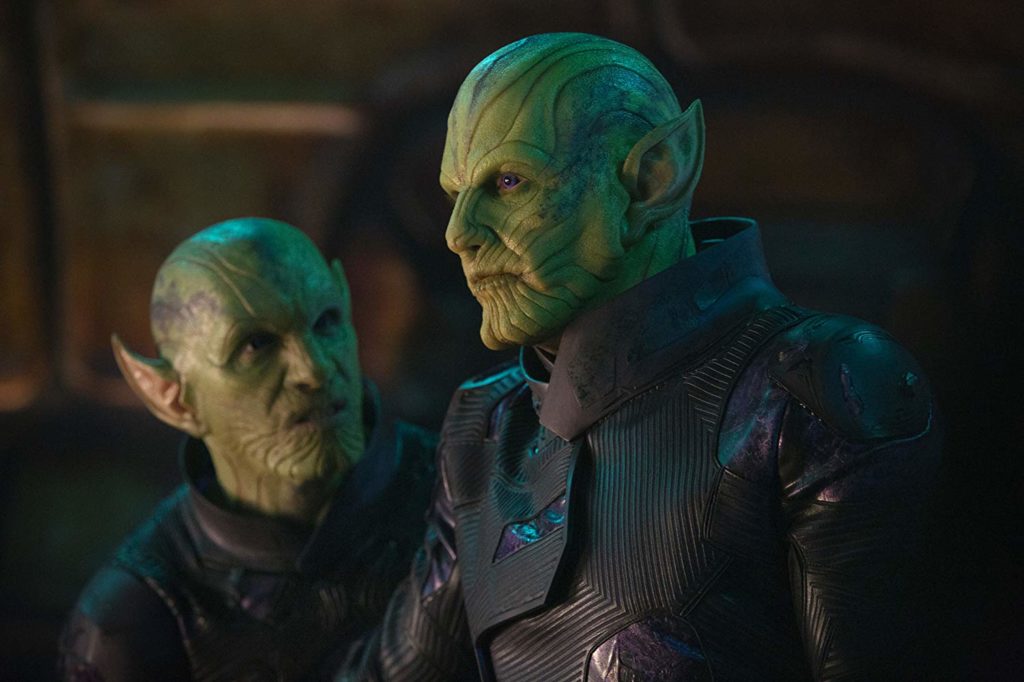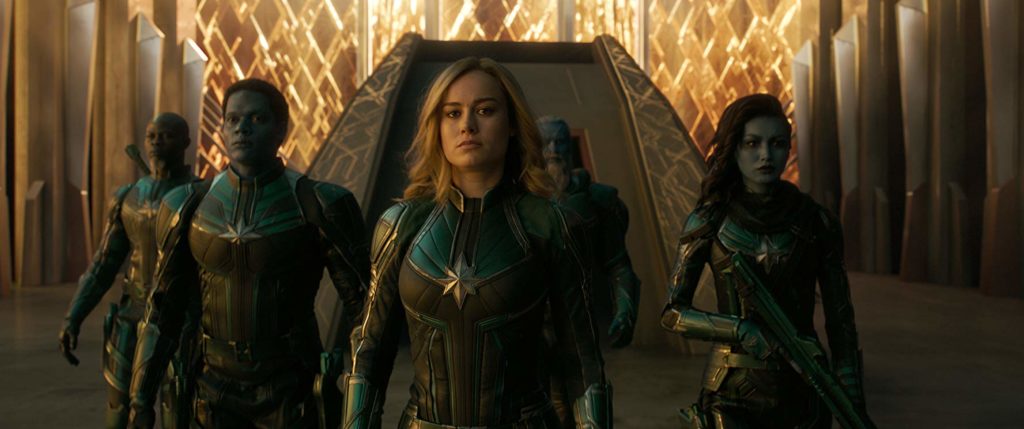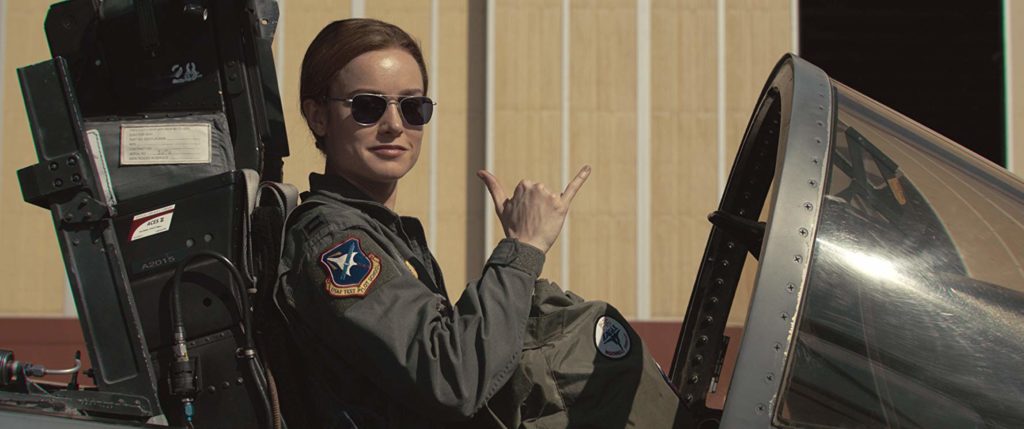The Marvel Cinematic Universe’s first female-led superhero film has, predictably, split opinion amongst critics and fans alike. Feminism is a tricky boat to be jumping into so late in the day, and while the girl power messaging in the film undeniably tugs some heartstrings, there are other aspects that are rather more troubling.
SPOILERS AHEAD
The intergalactic war between the Skrulls (green) and the Kree (blue, or simply human looking) provides the backdrop to Vers finding her true self as US Air Force pilot Carol Danvers (Brie Larson), and the big twist reveals that imperialist propaganda has shaped Danvers’ view of the whole war. The Kree have painted the Skrulls as “terrorists” who “infiltrate” targeted planets to take them over. The truth is revealed that they are refugees, complete with helpless women and children, seeking a way to escape the genocidal Kree.

The parallels are marked between the plight of the Kree and that of refugees on our own planet – responses to Syrian refugees seeking asylum in Europe and America have been rife with accusations of them infiltrating in order to commit terrorist acts, and threaten the freedom of the host countries. Brexit and the rise of the alt-right has made it clear that attitudes towards immigrants – especially those who look different – are growing more and more hostile. There’s clear a point being made here.
The Skrulls are visually what we’re used to seeing as the ‘bad guys’ – green and goblinish with inhuman faces, while the Kree are just humans with blue face-paint on. Their ability to shapeshift is presented as insidious and sly, while the Kree fight in ways we are used to: with fists and guns and quippy humour. Lines are drawn: us and them.

It’s powerful, then, to subvert this and for Carol to see through the brainwashing (both literal and figurative) to understand that being raised by an imperialist superpower results in seeing their victims as villains in order to justify war against them. Carol declares herself defender of the Skrulls and turns on her own Kree team. Distancing herself from the imperialist war-mongers that she has denounced, she wants to change the colour of her suit to reflect her new allegiance. Unfortunately, she decides the US Air Force colours would be the right ones to go for.
It’s so bafflingly colour blind (ha) that it’s hard to believe. The film might be set pre-9/11, but it’s nevertheless blatant that the Kree are ideological stand-ins for the very American imperialism that Carol then goes on to proudly wear the colours of.

Carol’s air force background could hardly have been ignored in this film, but military involvement with the production has clearly coloured the script. The fighter jets at the premier certainly raised a few eyebrows, and military recruitment ads using Captain Marvel as a girl power icon just leaves a bad taste in the mouth.
It’s all very well to use blue and green aliens as a metaphor for racial issues, but real life brown people are sick and tired of white feminism allowing this military imperialist propaganda to fly under the radar for the sake of not criticising a female-led superhero film.
Female-led superhero movies are no doubt a step in the right direction, but imperialist propaganda isn’t feminist, whatever colour you paint it.
